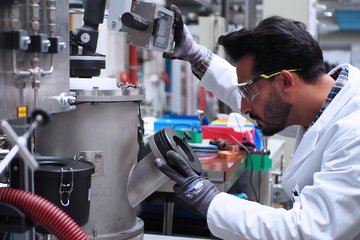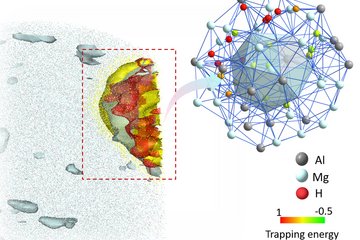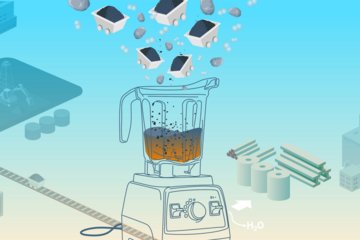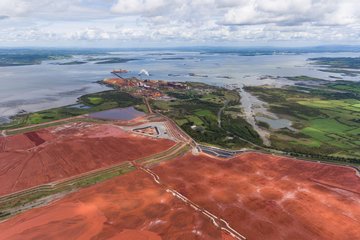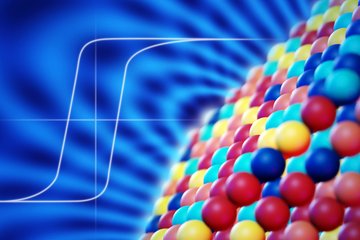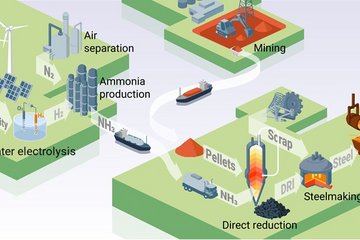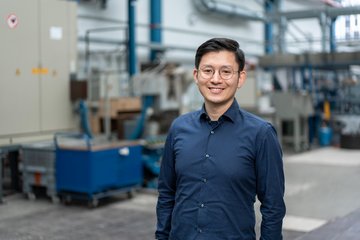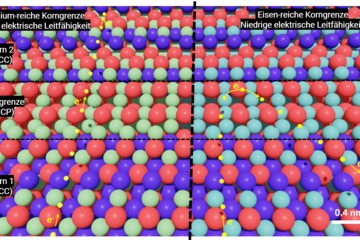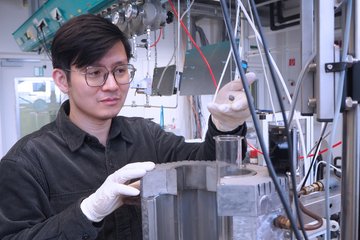Alle Typen
1301.
Vortrag
Ab initio Thermodynamik in der Materialwissenschaft: Status und Perspektiven. Fraunhofer Institut für Werkstoffmechanik Freiburg, Kolloquium, Freiburg, Germany (2007)
1302.
Vortrag
Ab initio determination of symmetry-reduced structures by a soft-phonon analysis in Ni_{2}MnGa. Spring meeting of the German Physical Society (DPG), Regensburg, Germany (2007)
1303.
Vortrag
Ab initio prediction of structural and thermodynamic properties of magnetic shape memory alloys. Focus meeting of the SPP 1239: Fundamentals of the Magnetic Shape Memory Effect: Materials properties & simulations, Schloss Ringberg, Germany (2007)
1304.
Vortrag
Ab-initio Studies on Alloy Formation in Diluted Nitrides. Workshop on Nitride Based Nanostructures, Berlin, Germany (2007)
1305.
Vortrag
Implementation and application of a multi-scale approach to electronic properties of group III-nitride based semiconductor nanostructures. Workshop on Nitride Based Nanostructures, Berlin, Germany (2007)
1306.
Vortrag
Ab initio prediction of structural and thermodynamic properties of metals. Seminar Abt. Jansen, MPI für Festkörperforschung, Stuttgart, Germany (2007)
1307.
Vortrag
Ab initio basiertes Materialdesign auf dem Computer. Hahn-Meitner-Institut Berlin, Kolloquium, Berlin, Germany (2007)
1308.
Vortrag
A k.p approach to electronic states and Coulomb interaction in semiconductor quantum dots. Forschergruppentreffen Uni Bremen, Bremen, Germany (2007)
1309.
Vortrag
Ab initio based Multiscale Growth and Doping Simulations of Group-III Nitrides. UK Nitrides Consortium Meeting, Cambridge, UK (2007)
1310.
Vortrag
From ab initio to materials properties: Accuracy and error bars of DFT thermodynamics. MMM Workshop, Barcelona, Spain (2007)
1311.
Vortrag
Ab initio prediction of structural and thermodynamic properties of metals. International Max-Planck Workshop on Multiscale Materials Modeling of Condensed Matter, Sant Feliu de Guixols, Spain (2007)
1312.
Vortrag
Anomalous equilibrium volume change of magnetic Fe–Al crystals. Materials Research Society fall meeting, Boston, MA, USA (2006)
1313.
Vortrag
Bottom up design of novel Titanium-based biomaterials through the combination of ab-initio simulations and experimental methods. Materials Research Society fall meeting, Boston, MA, USA (2006)
1314.
Vortrag
Ab initio modellation of crystal growth. Polkom-Workshop, Dresden, Germany (2006)
1315.
Vortrag
Tailoring the N-solubility in InGaAs-alloys by surface engineering: Applications and limits. 1. Harzer Ab initio Workshop, Clausthal, Germany (2006)
1316.
Vortrag
Ab initio study of human-bone-matched titanium alloys. 1. Harzer Ab initio Workshop, Clausthal-Zellerfeld, Germany (2006)
1317.
Vortrag
Vibrational modes and thermodynamic properties of the secondary structure of proteins. 1. Harzer Ab initio Workshop, Clausthal (2006)
1318.
Vortrag
Exact exchange within Kohn-Sham formalism. Standard and variational approach. 1. Harzer Ab initio Workshop, Clausthal-Zellerfeld (2006)
1319.
Vortrag
Ab initio description of grain boundaries and diffusion processes. Arbeitstreffen der Helmholtz-Allianz „HYPER“,, Darmstadt (2006)
1320.
Vortrag
Variation of empirical potentials using ab initio methods. Arbeitstreffen der Helmholtz-Allianz „HYPER“, Darmstadt (2006)

